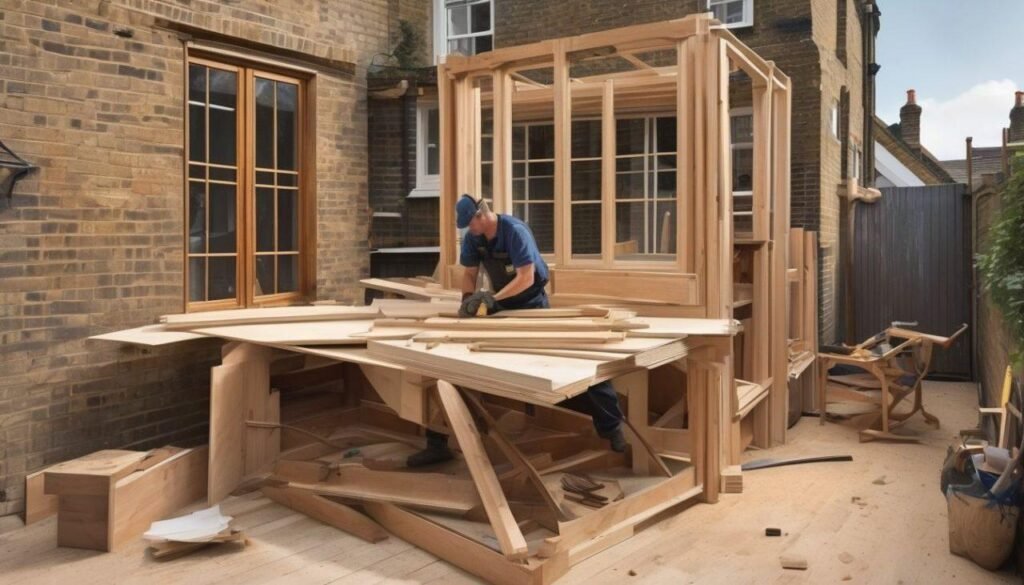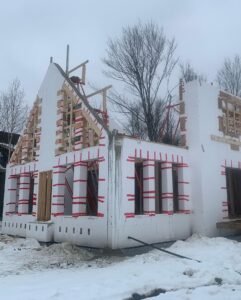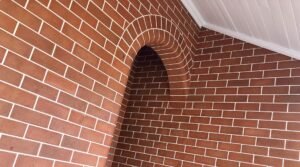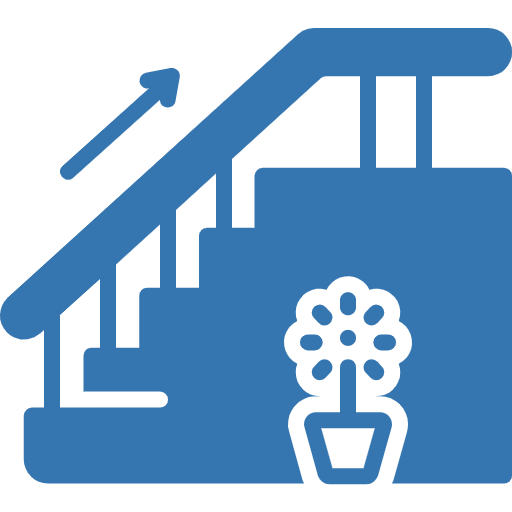A wood retaining wall is more than just a functional structure—it enhances your landscape by supporting soil, preventing erosion, and adding natural beauty to your outdoor spaces. Whether you’re considering garden retaining walls, backyard retaining walls, or a larger slope solution, selecting the best wood retaining wall materials is critical for both aesthetics and long-term durability.
In Toronto’s climate, where the weather brings heavy rain, freezing winters, and humid summers, choosing the right retaining wall materials is essential. Many homeowners opt for pressure-treated wood, cedar retaining walls, pine retaining walls, and even redwood walls to strike the right balance between strength, cost, and visual appeal.
The importance of choosing the right material extends beyond looks—it directly impacts retaining wall maintenance, wall lifespan, and the wall’s ability to endure harsh environmental conditions. Whether you’re looking for weather-resistant wood or eco-friendly wood walls, selecting the right wood retaining wall materials ensures your Toronto landscaping investment stands the test of time.
Table of Contents
ToggleWhy Choose Wood for Retaining Walls?
When building a wood retaining wall, Toronto homeowners often weigh both function and style. Wood stands out as one of the best retaining wall materials because it combines versatility, cost-effectiveness, and a timeless, natural look.
1. Aesthetic Appeal
Wood’s natural beauty blends seamlessly into outdoor landscapes, whether you’re creating garden retaining walls, backyard retaining walls, or larger erosion control walls. Unlike concrete, which can look industrial, wood adds a warm, natural texture that enhances any landscape design Toronto project. From cedar retaining walls to timber retaining walls, wood offers options for customization, whether for traditional or modern landscapes.
2. Cost-Effectiveness
Wood is a budget-friendly alternative to more expensive materials like stone or concrete. Pressure-treated wood is a particularly cost-effective option for backyard retaining walls or smaller garden landscaping projects in Toronto. While concrete may have a longer lifespan, wood provides a more affordable solution that, with proper preservation, can offer excellent retaining wall durability.
3. Ease of Installation
Building a wood retaining wall is simpler and quicker compared to working with heavy stone or concrete blocks. Many homeowners take on DIY wood retaining walls as a weekend project, or hire Toronto landscaping services for larger builds. Wood offers flexibility in design, making it ideal for sloped yard solutions or compact spaces.
4. Climate and Practical Benefits
In Toronto, it’s essential to choose weather-resistant wood that can withstand harsh climates. Materials like redwood walls, cedar wood advantages, and pressure-treated wood are perfect for Toronto’s climate, offering both durability and protection against the elements.
Common Wood Retaining Wall Materials
When planning a wood retaining wall, Toronto homeowners have several material options. Each type offers unique benefits in terms of strength, retaining wall durability, and aesthetics.
1. Pressure-Treated Wood
Pressure-treated wood is the most popular option due to its affordability and resistance to moisture. This material undergoes treatment to become weather-resistant wood, making it ideal for Toronto’s climate. It’s commonly used for backyard retaining walls and garden retaining walls. Proper preservation techniques and routine maintenance are essential to ensure longevity.
2. Cedar Retaining Walls
Cedar retaining walls are naturally resistant to insects and decay, making them a durable option. Cedar wood advantages include a warm, rustic appearance that enhances the overall aesthetics of your landscaping. While cedar retaining walls tend to cost more than pressure-treated wood, they’re a top choice for visible areas like gardens.
3. Pine Retaining Walls
Though not as durable as cedar or redwood, pine retaining walls are affordable and widely used. When treated, pressure-treated pine can offer solid performance in Toronto backyard improvement projects. However, pine retaining walls require regular maintenance to ensure long-lasting durability.
4. Redwood Walls
Redwood walls are perfect for homeowners seeking premium, durable wood walls. Known for their resistance to decay and moisture, redwood walls are ideal for erosion control walls and sloped yard solutions. Although more expensive, redwood walls offer exceptional durability and are perfect for luxury Toronto property landscaping projects.
5. Timber/Logs
Timber retaining walls offer a rugged, natural look that blends well with any landscaping style. Treated timber retaining walls provide structural strength, making them ideal for retaining wall durability in areas requiring high load-bearing capacity. Timber retaining walls are a popular choice for DIY wood retaining walls and sloped yard solutions.
Factors to Consider When Selecting Wood Materials
Choosing the right landscape wall materials impacts the retaining wall lifespan, cost, and performance. Here are some critical factors to consider:
1. Soil Pressure and Drainage
Consider soil movement and drainage when installing a wood retaining wall. Heavy clay soils or sloped properties put added pressure on walls, making it essential to have a solid wood wall foundation and proper drainage to avoid wall failure.
2. Resistance to Rot, Pests, and Moisture
Toronto’s fluctuating weather requires weather-resistant wood that can handle moisture and temperature changes. Pressure-treated pine, cedar, and redwood walls are all great options that offer natural resistance to rot, pests, and moisture.
3. Lifespan vs. Cost
Balancing retaining wall cost Toronto with longevity is important. While pine retaining walls are affordable, they require more retaining wall maintenance. Redwood offers a longer lifespan but comes at a higher price point.
4. Environmental Impact (Eco-Friendly Options)
Sustainable wood options, like eco-friendly wood walls, align with green building practices while still providing durable and reliable landscaping materials. Responsible sourcing ensures your project contributes to long-term environmental goals.
5. Regulations and Safety Considerations
Make sure to review retaining wall height regulations for larger projects. Compliance with local codes ensures safety and stability throughout the retaining wall installation process.
Pros and Cons of Wood Retaining Wall Materials
Advantages of Wood Retaining Walls
- Affordability: Wood is generally more cost-effective than stone or concrete.
- Natural Aesthetics: Wood wall aesthetics enhance the warmth and charm of outdoor spaces.
- Availability and Versatility: Wood is easily available and adaptable to various retaining wall designs Toronto.
Disadvantages of Wood Retaining Walls
- Limited Lifespan: Wood tends to have a shorter lifespan than stone or concrete due to weathering.
- Maintenance Requirements: Regular wood preservation techniques and sealing are necessary to protect against moisture and rot.
Maintenance Tips for Wood Retaining Walls
To extend the life of your wood retaining wall, regular maintenance is key. Here’s how to preserve your wood wall aesthetics and ensure lasting durability:
- Sealing and Staining: Apply sealants and stains to prevent rot and moisture damage.
- Proper Drainage: Install drainage systems to avoid hydrostatic pressure and soil damage.
- Regular Inspections: Check for cracks, rot, or insect activity to catch problems early.
Alternatives to Wood Retaining Wall Materials
While wood is a popular choice, consider other materials like concrete blocks, natural stone, or composite materials for specific needs. Each offers different advantages based on project requirements.
Conclusion
Whether you’re planning garden retaining walls, backyard retaining walls, or erosion control walls, the right wood retaining wall materials can enhance your landscaping project while ensuring long-lasting durability.
Consider factors like cost, aesthetics, climate, and maintenance to choose between materials like cedar, pine, pressure-treated wood, or redwood. With proper planning, your wood retaining wall Toronto project will not only improve your property’s look but will stand strong for years.
For expert help with your retaining wall installation and to learn more about professional services, visit TheFixItGuys – Local Retaining Wall Company Toronto. Our experienced team ensures that your retaining walls are built to last, combining aesthetics with durability to meet your specific landscaping needs.















